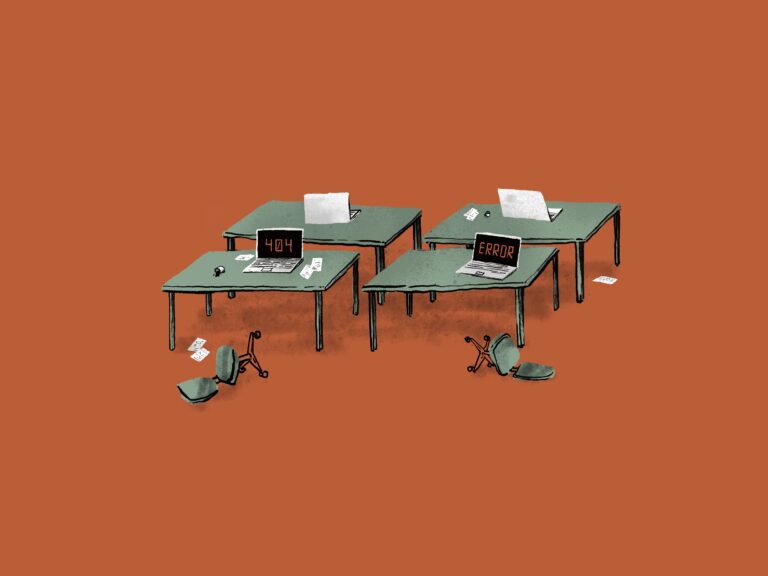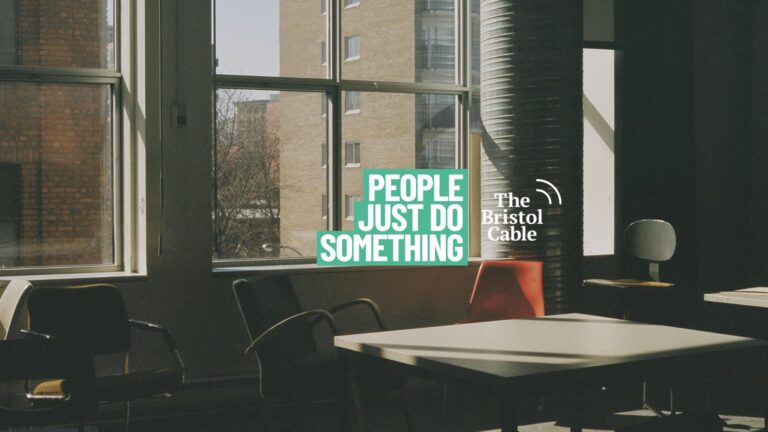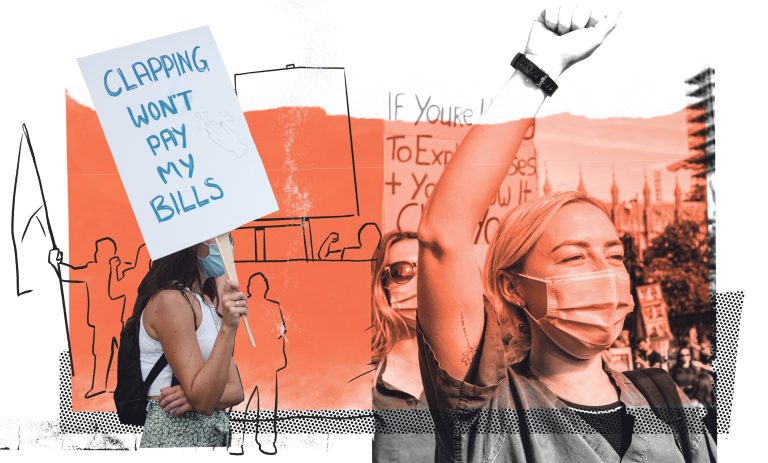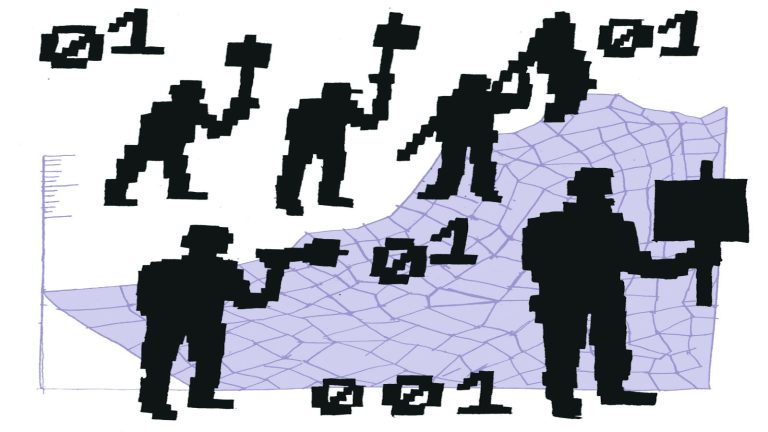Tech workers need unions too

Credit: Alex Dimond
Bristol sits as the capital city of “Silicon Gorge”. The triangle between Bristol, Gloucester and Swindon is home to one of the largest tech clusters in the UK outside London.
The Big Four accounting firms, and major players in the aerospace, finance, defence and digital media sectors squabble over Bristol’s best graduates and seasoned gurus.
Big tech was, until recently, the rebellious outlier in the world of work. Tech workers enjoyed attractive salaries, enticed into shiny offices with beer fridges and pool tables. They were also fed the promise of becoming rugged individuals, the CEO of their own lives in the free marketplace of work.
Recently, the myths of Silicon Valley have proven to be shallow, with tech companies increasingly becoming part of the establishment. Inhuman working hours, and the subsequent sector-wide epidemic of poor mental health and burnout, is fast eclipsing the heady heydays of ping-pong tables and pizza parties. Not to mention, the collapse of Silicon Valley Bank in 2023 led to an international tsunami of redundancies and a shrinking job market.
But, fear not. After 40 years of wandering the desert, the lost art of trade unionism is making a comeback. Techies are learning how to organise in their workplaces and assert themselves as bargaining units, giving them a voice to negotiate against excessive workloads or harmful decisions from management.
I’ve been a member of UTAW (United Tech and Allied Workers) for many years. Formed by ex-Alphabet and Meta employees, we’re an official branch of the mighty CWU, (Communication Workers Union). I’ve worked in the IT/Tech sector for over 15 years. Whether it’s Bristol, London, Swindon or San Francisco, the industry behaves pretty much the same way. Companies are notorious for throwing a parade in their own favour during good times, only to give the people who created them the cold shoulder at the first signs of difficulty.
Our union is building a growing movement of mutual support and solidarity in a sector too often afflicted by insufferable tech-bro individualism. If you want to truly disrupt Big Tech, we have to unionise our workforce.
Redundancies on the increase
I recently sat down with a couple of fellow UTAW members to talk about their time at a cybersecurity firm based in Bristol. For anonymity, I’ll refer to them as Tim and Mark.
Initially, all seemed well. The products and services created by the startup where they work are both useful and interesting (usually it’s one or the other). The company paid well, and the team consisted of those rare, wonderful, associates that can make a job a career.
Like other plucky startups with a great idea, the company quickly blew up, expanding its dreams as fast as it could hire people to realise them. Early big players sold up and moved on, and new investors rolled in from across the globe, hungry for huge returns. Suddenly, the work was about chasing growth and bean counting from a board of faceless moneymen.
Newly appointed middle managers started creating a gulf between the people actually doing the work and the people calling the shots —taking the credit when things go well, and finger-pointing when they don’t. “It’s remarkable how poorly they communicate to us, and then blame us for their own failures”, Mark tells me.
In recent years, around 100 colleagues — experienced and respected engineers — have left the company in what Tim described as poorly communicated “voluntary, but pressured” rounds of redundancies. The reasoning from management has been inconsistent, says Mark. One day it’s “restructuring, other days it’s cost-cutting”.
After fruitless dialogue through official channels, Tim and Mark used that entrepreneurial spirit endemic in tech and began reaching out to other frustrated colleagues to unionise their workplace.
It’s not been a hard sell. John Chadfield, UTAW veteran and now Assistant Secretary of Tech for the CWU, says workers across the whole sector have realised that work won’t love them back in times of need: “Economic chaos and uncertainty have given them the suspicion that they are workers the same as everyone else, and learning about [UTAW] confirms it”, he said.
Toxic workplaces are proliferating
Workers in the tech sector are facing several challenges. At the first sign of hard times, vulnerable workers like the disabled and neurodivergent often find themselves the first to go, if not via redundancies then an increasingly common weapon companies use against workers is the misuse of PIPs (personal improvement plans).
On paper, their legitimate use is to get employees not pulling their weight on the road back to being productive workers, but in practice, these are being misused against marginalised workers who struggle in their day-to-day. Dyslexic people have been reprimanded for spelling mistakes and workers with ADHD find themselves stuck on these plans before a company puts in the required reasonable adjustments that would let them thrive.
Our union is building a growing movement of mutual support and solidarity in a sector too often afflicted by insufferable tech-bro individualism
Nepotism in the sector is rife. Good luck standing up to your bully of a manager if he’s the brother of the director. I’ve seen female colleagues push back against the office creep only to be asked in very strong terms by HR and senior management to consider the image of the business.
Since Covid had many of us working from home overnight, workplace surveillance grew more prominent. Ironically, logging every keystroke has been harming the productivity workplaces sought to increase.
Graduates can get a really bad deal too. Low-paid internships are still common, and once you get a full-time job offer, getting a pay rise is difficult without leaving the company. I’ve worked with dozens of hopefuls who came fresh out of uni before putting years into companies and projects with barely a raise or a bonus they didn’t have to fight for.
This isn’t limited to Bristol. Burnout culture, toxic workplaces and draconian management practices are depleting the health and sanity of tech workers the world over. Books like “Work, Pray, Code” reveal the fervent attitude to work within the tech sector.
It’s time for tech to unionise
The tech sector’s strategic and economic importance to the world economy is beyond debate, but its power can’t go unchecked. A senior rep at UTAW told me that “workers don’t really know their rights in the first place, and the ones that do don’t know how to apply or enforce them”. If workers know they have a right to representation in management meetings they can push back against redundancies.
Imagine the next time the executives drag everyone into a company meeting only to announce yet another round of restructuring. In response to the dozens of meetings the layers of management had behind your back, your union would give you the space to hold your own. This is how dockworkers, steel workers and coal miners used to do it, and it transformed society for the better.
As membership has increased here in Bristol and the South West, so has the number of cases being taken against employers. Workers are finally being empowered to push back against bad practices like discrimination, and unpaid overtime. Further afield UTAW is gaining membership from workers at TikTok, Monzo, and giants like Apple and Microsoft. If Big Tech is to live up to its own hype, it must be through a worker-led movement. The change is already happening, and the effects are going to snowball.
Independent. Investigative. Indispensable.
Investigative journalism strengthens democracy – it’s a necessity, not a luxury.
The Cable is Bristol’s independent, investigative newsroom. Owned and steered by more than 2,500 members, we produce award-winning journalism that digs deep into what’s happening in Bristol.
We are on a mission to become sustainable, and to do that we need more members. Will you help us get there?
Join the Cable today












